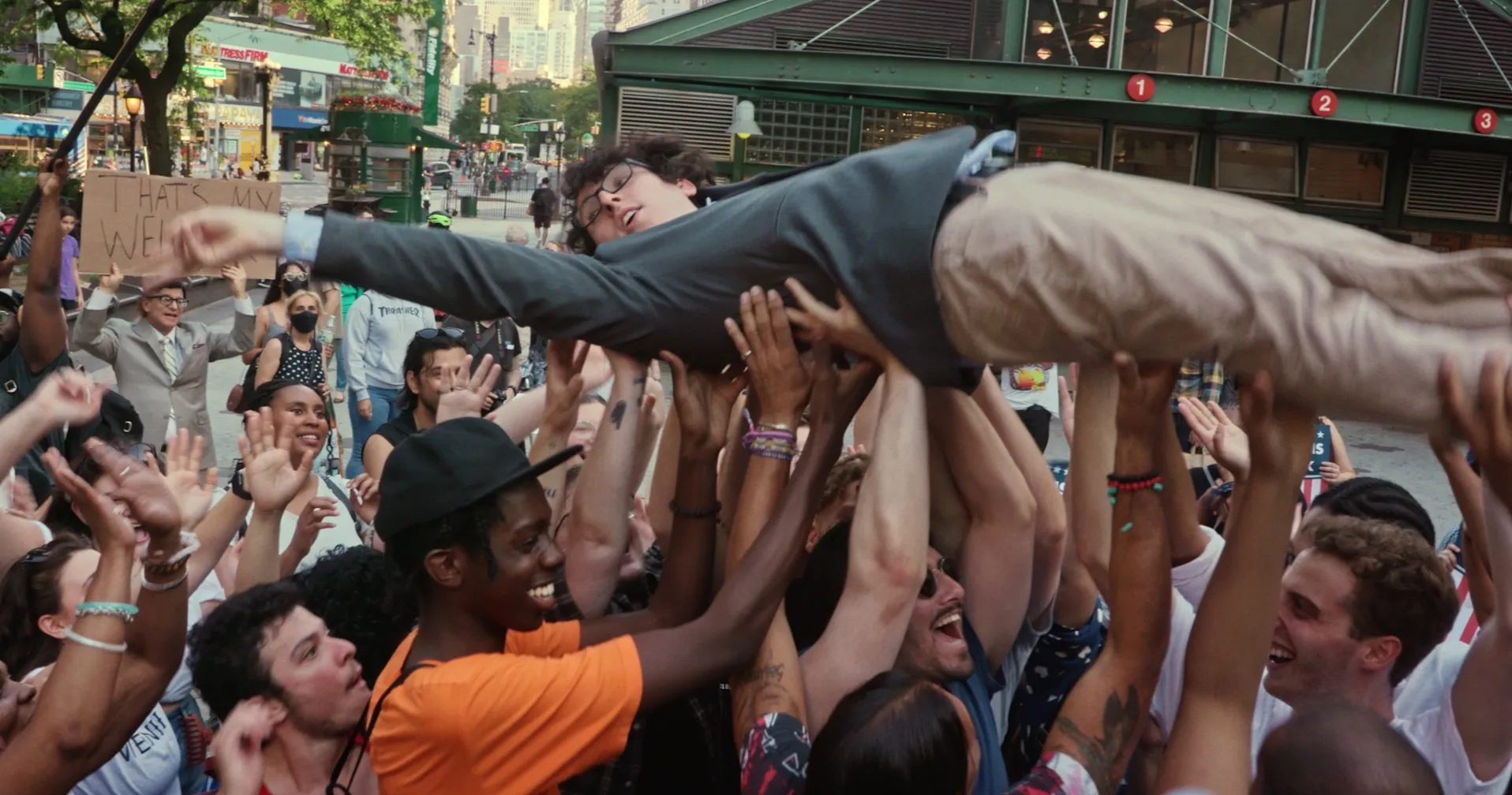Slamdance Film Review: Citizen Weiner
Film Reviews
Slamdance Film Review: Citizen Weiner
Director: Daniel Robbins
Premiere: 01.21
In an ever-growing sea of satire, political quasi-documentary Citizen Weiner fails to make a clear statement nor much of a lasting impression. The highly-embellished journey into aspiring actor Zackary Weiner’s failed candidacy for New York City councilman tries to position itself somewhere between a Borat-esque embrace of the ever-bizarre American political landscape, a sincere plea for change among New York’s young voters and a workplace comedy. But this fragmentedness ultimately leaves the final product feeling emotionally hollow and, frankly, not as funny as it seems to think it is, even with dynamic and innovative editing.
Friends Joe Gallagher and Zackary Weiner set off to make a film documenting their campaign to place Weiner in office with the help of director Daniel Robbins in 2021 and, in the process, aimed to cheekily shine a light on the importance of local politics while simultaneously undermining it. The main ethos behind the Weiner 2021 campaign, as it’s presented in the film, can be summarized as “things need to change.” What needs to change? How is Weiner going to do it? Well, Gallagher and Weiner don’t directly tell the audience at any point within the documentary. As time goes on, it becomes evident that the making of Citizen Weiner was the true end goal of the campaign and any aforementioned change brought on by it was just a bonus.
The sincerity of the film is further brought into question by the fact that certain aspects of the film are noticeably pre-planned. Several heavily-featured members of the Weiner campaign team are actors in real life and, to its credit, the film doesn’t try to hide that they’ve been given characters to play or that certain plot points are completely made up. But as a result, the scenes with Weiner consulting his campaign team read like an attempt at something like VEEP or Parks and Recreation. Conceptually, this shouldn’t be a huge blow to the integrity of the film but it doesn’t make it less of a detriment to its quality.
When cut against footage of the general public or any of the real people featured in the documentary, the campaign team’s presence feels scripted and exaggerated—even by sitcom standards. The dry humor it tries to evoke comes across as soaking wet and hokey, almost as if the movie is trying to reassure you that it’s funny every five minutes. Arguably, some of the more comedic parts of the documentary are the ones that have little to do with the campaign team riffing off of one another and instead let the absurdity of New York and the people that live in it speak for itself.
Some of the better parts of the film are the sequences in which Weiner and company interact with the citizens of New York—specifically those who have cemented their desires to make the city a better place by getting involved in the community. One such moment is when Team Weiner opens a pop-up shop for Brooklyn charity Obocho’s Closet, a truly remarkable children’s clothing co-op run by Obocho Peters (who was 12 at the time of filming) and his mother, with a focus on making clothes more accessible to underprivileged families. Throughout the film, Weiner and company also spread awareness for a local business owner in need of a kidney transplant, and it shines a light on other New Yorkers who are deserving of recognition and adoration. Generally, whenever Citizen Weiner steps outside of itself, it’s solid and full of potential, yet whenever it switches back to focusing on the titular Zackary Weiner and his hijinks, it shatters any foundation that it had to stand on.
It’s a well-put-together piece with well-timed and sleek editing that almost functions as the heartbeat and energy of the film. Visually, it’s clear that the documentary was in good hands, as it uses very little B-roll and archival footage compared to other, similar works.
The main problem with Citizen Weiner as a political documentary is that it doesn’t follow its own moral compass. Throughout the documentary, Gallagher and Weiner are outspoken about the necessity of fresh ideas in New York’s Upper West Side; however, they make it clear that their campaign isn’t to be taken seriously. For instance, at the beginning of the film, Weiner outlines his plan to hire a fleet of ice cream trucks if he wins, which is played as a comedic moment. But most of the other scenes where Weiner has the opportunity to be genuine and present, actionable policies are glossed over and rushed, apart from a line or two where he expresses how he feels that politicians don’t do enough—a devastatingly lukewarm take.
At its best, Citizen Weiner is a love letter to the people who make Manhattan that pays tribute to the individuals who actually devote themselves to making New York a better place. At its worst, Citizen Weiner is a vanity project that tries too hard to make you laugh. The sharp editing is clever, but not enough to save the film from feeling disjointed. Overall, Citizen Weiner suffers from an identity crisis and struggles to rise to the occasion. –Becca Ortmann
Read more of SLUG‘s comprehensive coverage of the 2024 Slamdance Film Festival.

